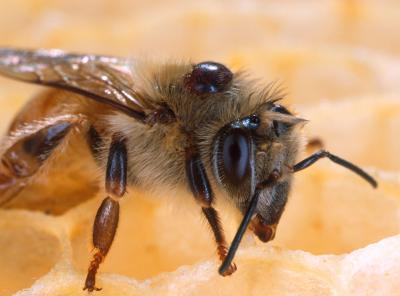Scientists still scratching their heads over Colony Collapse Disorder

The U.S. Department of Agriculture has released the 2010 Colony Collapse Disorder (CCD) Progress Report documenting the latest data on the mysterious phenomenon which has plagued commercial growers for years. Produced by USDA's Agricultural Research Service (ARS) and National Institute of Food and Agriculture, the study seeks to find the cause of the CCD problem and possible ways to ameliorate its effects. Congress mandated the report in 2008 as a summary of research by federal agencies, state departments of agriculture, academia and private organizations.
CCD is a syndrome characterized by a sudden drop in beehive populations as foraging bees fail to return to their hives. Since it was first labeled in 2006, the phenomenon has been tracked by surveys of commercial beekeepers throughout the United States. The USDA holds that before the appearance of CCD, adult honeybee losses averaged 15-20 percent annually from a variety of factors including various pests and pathogens such as varroa mites. Now, experts fear that industry losses have surpassed 30 percent a year. This is an alarming statistic for California farmers who rely on over 50 percent of the nation's commercial bee stock to pollinate their crops.
"Honey bees are critical to U.S. agriculture, with about 130 crops depending on pollination to add more than $15 billion in crop value annually. It is vital that we find a way to deal with CCD," ARS Administrator Edward B. Knipling said. "This report is an important measure of what we are learning about this serious problem."
According to the Agriculture Department's ARS website:
“Although the cause or causes of CCD are still unknown, research summarized in the report supports the hypothesis that CCD may be a syndrome caused by many different factors, that work individually or in combination. The sequence and combination may not even be the same in every case.”
In short, we still have no idea what's happening to the bees.



